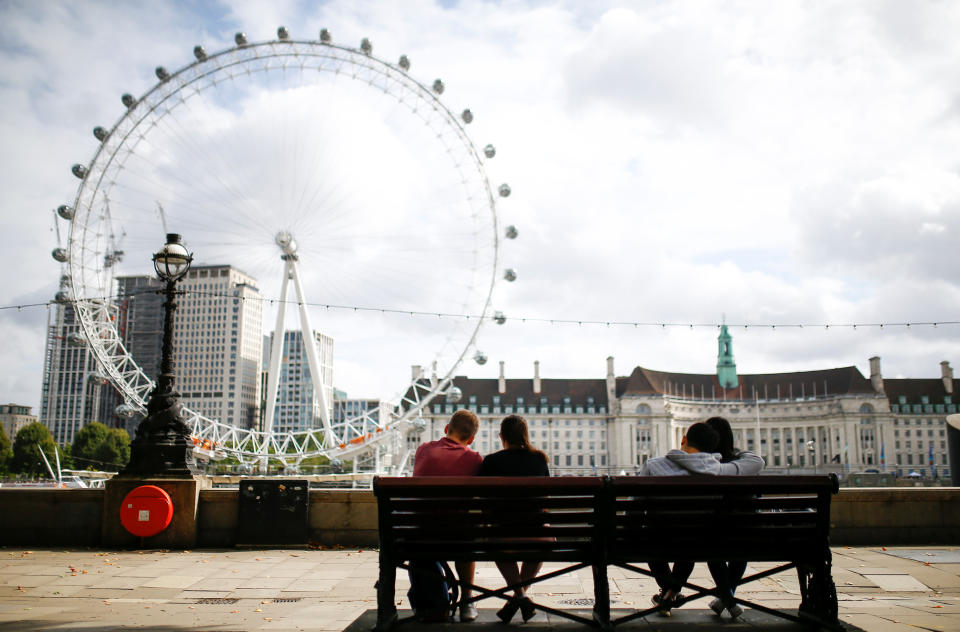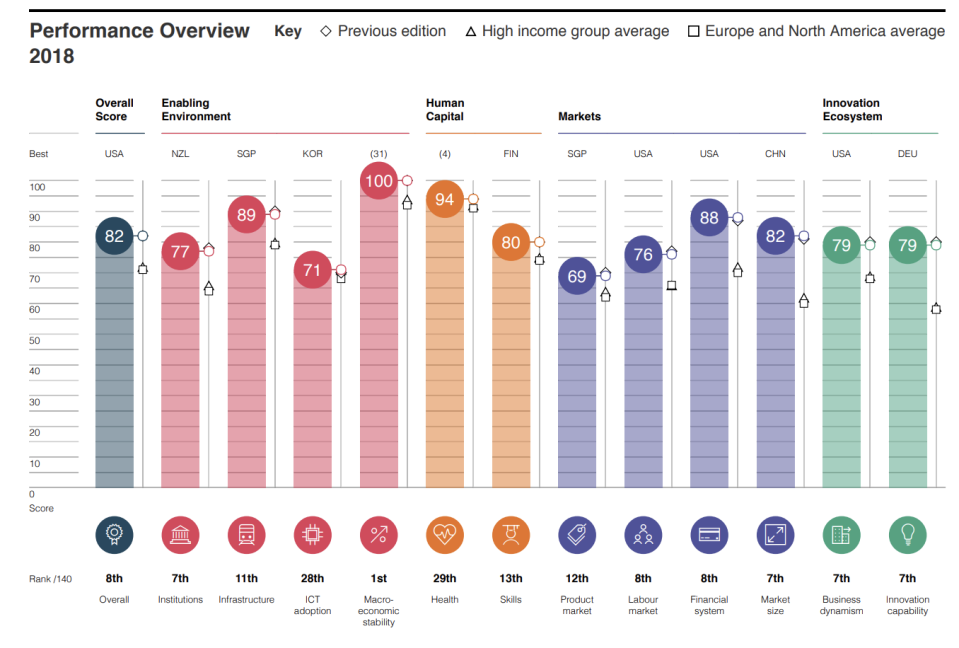Brexit threatens UK's position as the 8th most competitive country in the world

The World Economic Forum just revealed that Britain is the eighth most competitive country in the world. Although, the UK could see its stature drop when the nation leaves the European Union in six months time — and especially without a deal.
Every year WEF releases its benchmark Global Competitiveness Report that takes a look 98 indicators across 140 countries to determine the overall ranking. Each indicator uses a scale from 0 to 100, to signify how close an economy is to the ideal state or “frontier” of competitiveness. Those indicators are then organised into 12 pillars, such as health, skills, financial system, infrastructure, and institutions.
In addition, WEF this year used a new methodology to fully capture the new emerging dynamics of what fuels the global economy, which means including some other indicators that were not included before, such as diversity, workers rights, re-skilling, and press freedom.
The report showed how the UK was particularly strong in areas such as institutions, infrastructure, health, skills, and its financial system.

The area which claims the pole position in — macroeconomic stability — helps drive the UK to nearly the top of the ranking with an overall score of 82.0. But it’s also the area that is greatly threatened when Brexit happens after 29 March 2019.
The biggest issue surrounding Brexit talks at the moment is the fact that we’re inching closer to a no-deal scenario. Economists have recently delivered a range of ultra-gloomy forecasts.
At the weekend, EY Item Club economists predicted that Britain’s economy is heading for its worst year in almost a decade after official figures revealed no growth in GDP in August. It predicted that the UK economy will grow just 1.3% in 2018, down from a previous 1.4% estimate, and downgraded the outlook for the second consecutive quarter.
The week before, the Office for Budget Responsibility (the government’s economic forecaster) warned that a no-deal Brexit would trigger border delays, which, in turn, could lead to companies and consumers stockpiling food and other supplies, including medicine.
Donald Tusk, president of the European Council, released a statement on Monday (16 October) saying a “no-deal is now closer than ever.”

 Yahoo Finance
Yahoo Finance 
